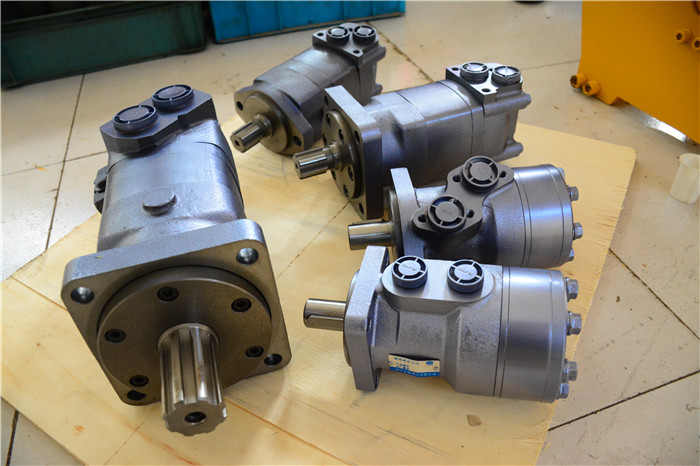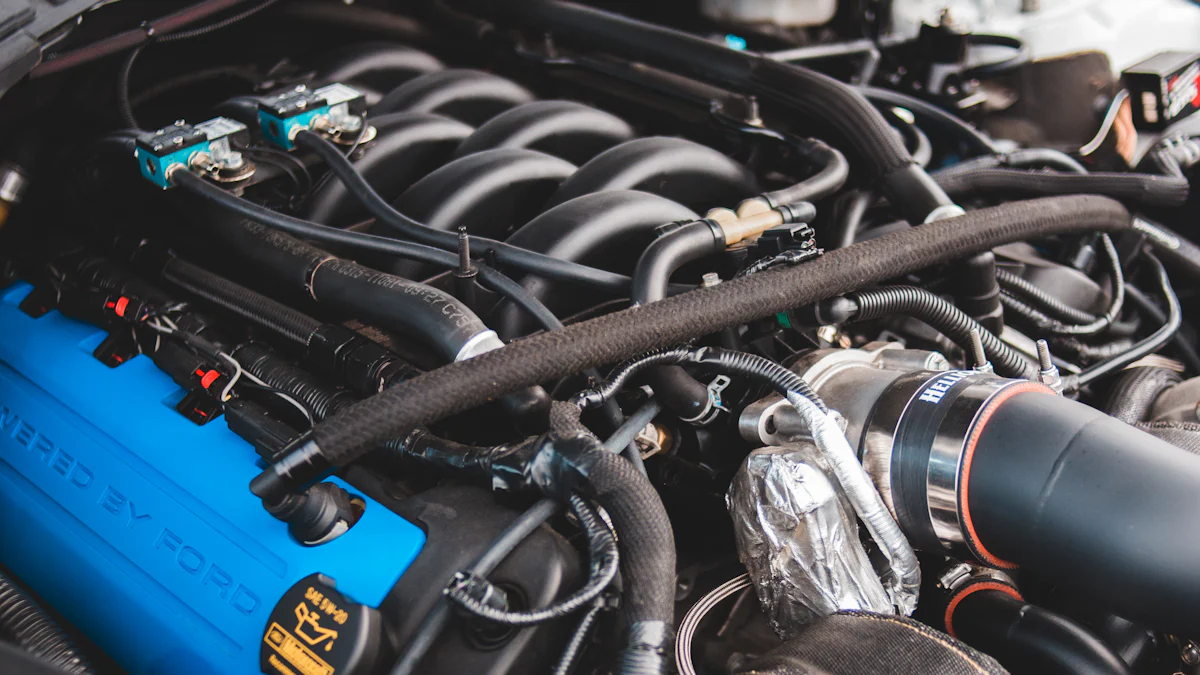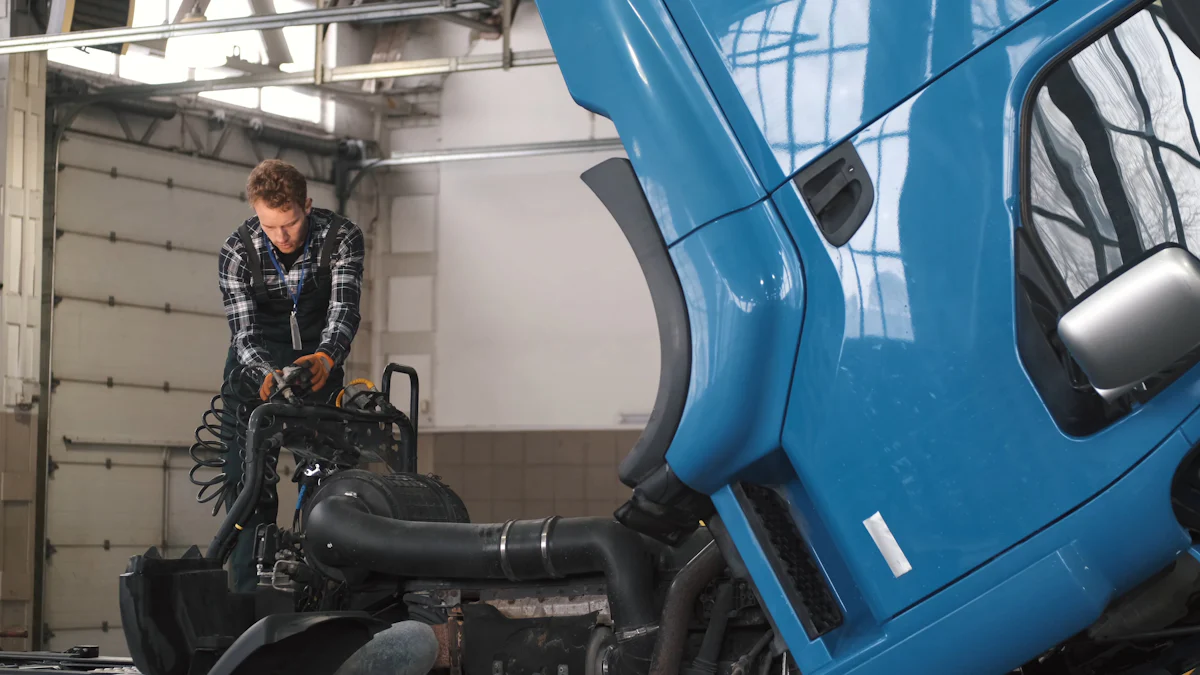Understanding the Different Types of Hydraulic Motors and Their Applications

Hydraulic motors play a vital role in converting hydraulic energy into mechanical power. You’ll find them in various industries, from construction to agriculture. Models like the HYDRAULIC MOTOR IMC SERIES or Hydraulic Motor – INM1 Series offer precision and efficiency. For heavy-duty tasks, the Hydraulic Motor IMB Series provides unmatched performance.
Key Takeaways
- Hydraulic motors change hydraulic energy into mechanical power. They are important in industries like farming and building.
- Picking the right motor means checking power, speed, and torque needs. Gear and vane motors work well for fast jobs. Piston motors are best for strong and precise tasks.
- Taking care of motors helps them last longer. Gear and orbital motors are simple to fix. Checking piston motors often keeps them working well.
Gear Hydraulic Motors

Characteristics of Gear Hydraulic Motors
Gear hydraulic motors are compact, reliable, and easy to maintain. They use interlocking gears to convert hydraulic energy into mechanical power. This design ensures consistent performance and makes them suitable for high-speed operations. You’ll notice that these motors are built to handle moderate pressure levels, which helps them deliver steady torque output.
One of their key features is simplicity. The straightforward design reduces the chances of mechanical failure, making them a durable choice for many applications. Additionally, their small size allows you to install them in tight spaces without compromising efficiency. Gear hydraulic motors also operate with minimal noise, which can be an advantage in environments where sound levels matter.
Applications of Gear Hydraulic Motors
You’ll find gear hydraulic motors in a variety of industries. In agriculture, they power equipment like harvesters and sprayers. In construction, they drive machinery such as concrete mixers and compactors. These motors are also common in manufacturing, where they operate conveyor belts and assembly lines.
Their ability to handle high speeds makes them ideal for tasks requiring quick and repetitive motion. For example, they’re often used in industrial automation systems. If you need a motor for light to medium-duty applications, a gear hydraulic motor is a practical choice. Its versatility ensures it can meet the demands of many operational settings.
Vane Hydraulic Motors
Characteristics of Vane Hydraulic Motors
Vane hydraulic motors are known for their smooth and efficient operation. These motors use a rotor with sliding vanes that move within a housing. This design allows them to convert hydraulic energy into mechanical power with high precision. You’ll notice that vane motors excel in applications requiring consistent speed and torque.
One standout feature is their ability to handle medium pressure levels while maintaining excellent efficiency. They also operate quietly, making them suitable for environments where noise reduction is essential. Vane motors are compact and lightweight, which makes them easy to install in systems with limited space. Their design minimizes internal leakage, ensuring reliable performance over time.
Another advantage is their ability to reverse direction quickly. This feature makes them versatile for tasks that require frequent changes in motion. If you need a motor that combines efficiency, durability, and quiet operation, a vane hydraulic motor is an excellent choice.
Applications of Vane Hydraulic Motors
You’ll find vane hydraulic motors in various industries due to their versatility. In manufacturing, they power machines like injection molding equipment and presses. In construction, they drive tools such as concrete pumps and drilling rigs. These motors are also common in material handling systems, where they operate conveyors and lifts.
Their smooth operation makes them ideal for applications requiring precise control. For example, they’re often used in robotics and automated systems. If your project demands consistent performance and low noise levels, a vane hydraulic motor can meet those needs effectively.
Piston Hydraulic Motors

Characteristics of Piston Hydraulic Motors
Piston hydraulic motors are known for their high efficiency and ability to handle extreme pressure levels. These motors use a series of pistons arranged in a cylinder block to convert hydraulic energy into mechanical power. This design allows them to deliver exceptional torque and power output, making them suitable for demanding applications.
You’ll notice that piston motors can operate at both high and low speeds without compromising performance. Their precision makes them ideal for tasks requiring accurate control. Additionally, they are built to withstand harsh environments, thanks to their robust construction. This durability ensures a longer lifespan compared to other motor types.
Another key feature is their ability to maintain consistent performance under heavy loads. This makes them a reliable choice for industries where equipment must perform continuously without failure. If you need a motor that combines strength, efficiency, and precision, a piston hydraulic motor is an excellent option.
Applications of Piston Hydraulic Motors
Piston hydraulic motors are widely used in industries that demand high power and reliability. In construction, they drive heavy machinery like excavators, cranes, and bulldozers. In agriculture, they power equipment such as tractors and harvesters. These motors are also common in the oil and gas industry, where they operate drilling rigs and pumps.
Their ability to handle high-pressure systems makes them ideal for industrial applications. For example, they are often used in metal forming machines and hydraulic presses. You’ll also find them in marine equipment, where they power winches and propulsion systems. If your project involves heavy-duty tasks, a piston hydraulic motor can meet your requirements effectively.
Orbital Hydraulic Motors
Characteristics of Orbital Hydraulic Motors
Orbital hydraulic motors are compact and efficient. These motors use a unique design that includes an internal gear mechanism. This setup allows them to deliver high torque at low speeds. You’ll find that orbital motors operate smoothly, even under heavy loads. Their ability to maintain consistent performance makes them reliable for demanding tasks.
One standout feature is their ability to handle high-pressure systems. This capability ensures they perform well in tough environments. Orbital motors also have a simple construction, which reduces maintenance needs. Their durability makes them a cost-effective choice for long-term use.
Another advantage is their versatility. You can use them in applications requiring precise control or continuous operation. Their design minimizes internal leakage, ensuring efficiency over time. If you need a motor that combines power, reliability, and adaptability, an orbital hydraulic motor is a great option.
Applications of Orbital Hydraulic Motors
You’ll see orbital hydraulic motors in a wide range of industries. In agriculture, they power equipment like harvesters and augers. In construction, they drive machinery such as trenchers and skid steer loaders. These motors are also common in forestry, where they operate saws and log splitters.
Their ability to deliver high torque at low speeds makes them ideal for heavy-duty tasks. For example, they’re often used in mining equipment and drilling rigs. You’ll also find them in industrial settings, where they power conveyors and mixers. If your project involves challenging conditions, an orbital hydraulic motor can meet your needs effectively.
Choosing the Right Hydraulic Motor
Evaluating Power, Speed, and Torque Needs
When selecting a hydraulic motor, start by assessing your power, speed, and torque requirements. Power determines how much work the motor can perform, while speed refers to how quickly it operates. Torque measures the rotational force the motor delivers. For high-speed tasks, gear motors or vane motors may suit your needs. If you require high torque at low speeds, consider orbital motors. Piston motors work best for applications demanding both high power and precision. Matching these factors to your project ensures optimal performance and efficiency.
Considering Environmental and Operational Factors
The environment where you’ll use the motor plays a significant role in your decision. For dusty or wet conditions, choose a motor with robust sealing to prevent damage. If noise levels matter, vane motors or gear motors are quieter options. Operational factors like temperature and pressure also influence your choice. Piston motors handle extreme pressures well, while vane motors excel in medium-pressure systems. Always evaluate how the motor will interact with its surroundings to avoid performance issues.
Maintenance and Durability Considerations
Maintenance and durability impact the long-term value of your investment. Gear motors and orbital motors have simple designs, making them easier to maintain. Piston motors, though more complex, offer exceptional durability for heavy-duty tasks. Regular maintenance, such as checking seals and lubricants, extends the motor’s lifespan. Choose a motor that balances your maintenance capabilities with the demands of your application. A well-maintained hydraulic motor ensures reliable performance over time.
You’ve now explored the four main types of hydraulic motors: gear, vane, piston, and orbital. Each offers unique strengths for specific tasks. Choosing the right motor ensures efficiency and reliability. Evaluate your needs carefully. Use this knowledge to make informed decisions or consult an expert for guidance tailored to your application.
FAQ
What is the main advantage of using hydraulic motors?
Hydraulic motors provide high power density and precise control. They excel in applications requiring consistent torque and performance under heavy loads.
How do you choose the right hydraulic motor for your project?
Evaluate your power, speed, and torque needs. Consider environmental factors like noise and pressure. Match these requirements to the motor’s characteristics for optimal performance.
Are hydraulic motors difficult to maintain?
Most hydraulic motors, like gear and orbital types, have simple designs. Regular checks for seals and lubrication ensure long-term reliability and minimal maintenance effort.